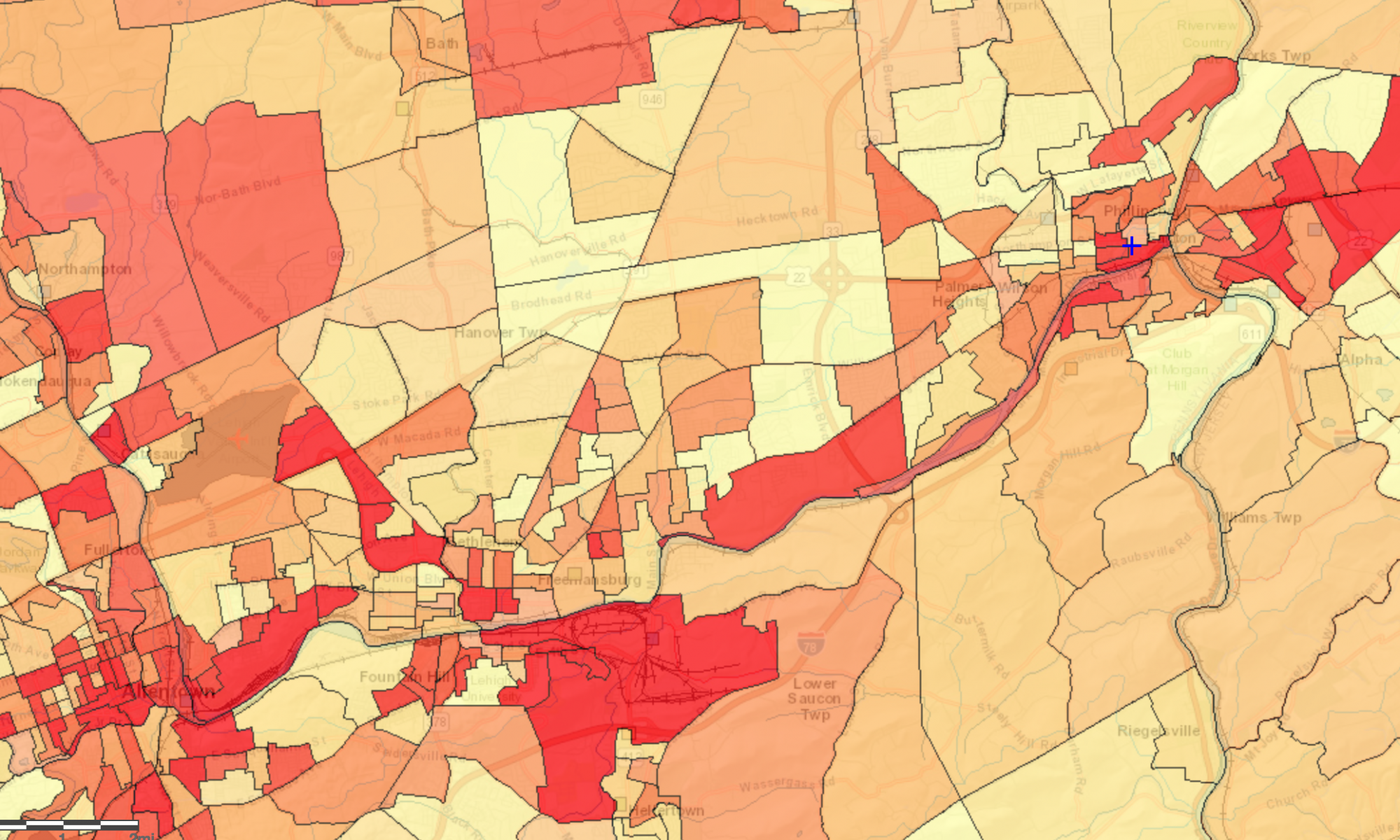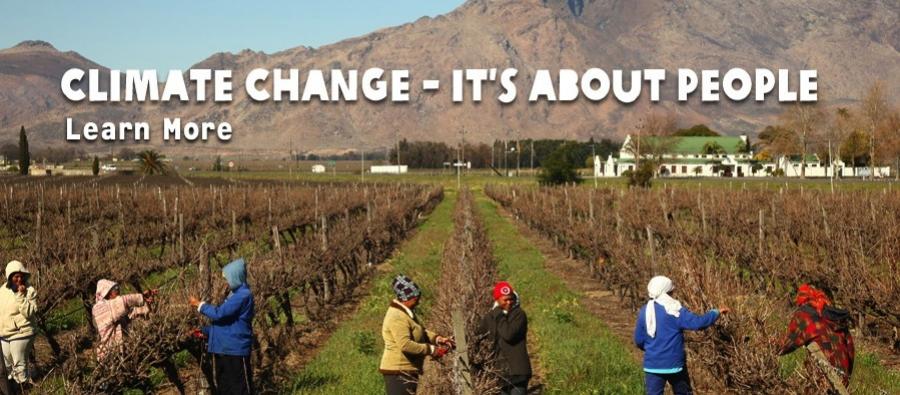It is expected that there will be both more rain and more droughts in the Lehigh Valley in the upcoming years. These changes will exacerbate health issues in the Lehigh Valley, like respiratory problems. The increased rain will also cause more floods to occur, which will affect those who live within floodplains. Not all people who live in floodplains have ample funds to rebuild after flood events, which causes an unequal distribution of environmental impacts.
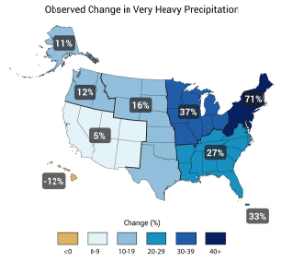
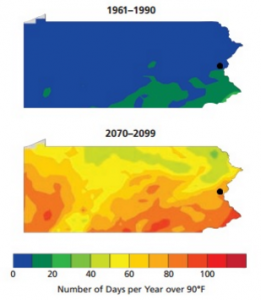
The median household income in the Lehigh Valley is $57,510 which is not far from the national average of $51,939. Recognizing that the average household income doesn’t represent every town equally, two case studies were run to see the incomes, races, and education levels of two more prominent manufacturing towns in the Lehigh Valley, South Side Bethlehem and Catasaqua.
South Side Bethlehem’s median household income is around $45,000 which is substantially lower than the Lehigh Valley average. It is predominantly white and Hispanic communities, but many other races are dominant as well, making it a very diverse neighborhood. A little above 50% of South Side Bethlehem have a less than high school level of education. This is a challenging statistic when working towards educating the Lehigh Valley about the risks and needs to prepare for the effects of climate change.
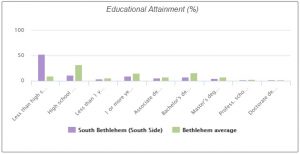
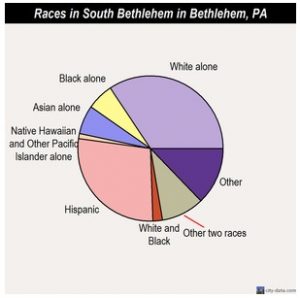
Catasaqua, PA is a town that is economically quite similar to South Side Bethlehem, but racially it is very different. It is common to assume that if a town is predominantly white that it ranks high on the socioeconomic scale, but that is not the case with Catasaqua. Catasaqua’s median household income is around $50,000. A very large majority of the population is white, but it is clear that while they may be better off than South Side Bethlehem, Catasaqua is still not a dominant town economically in the Lehigh Valley. A little under 40% of Catasaqua residents have graduated high school or equivalent. This still brings up the issue of trying to educate residents about climate change and how they can prepare.
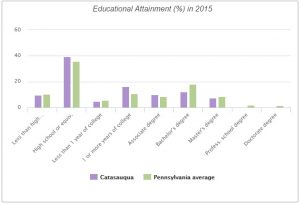
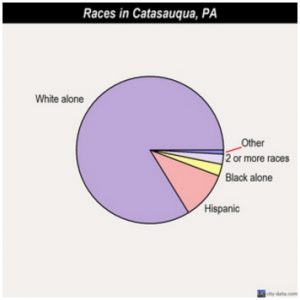
The demographics of the Lehigh Valley are important to consider, as they will be the root of the climate injustices. The impoverished, undereducated, minority, and/or culturally or linguistically isolated residents of the Lehigh Valley are much more vulnerable to the climate change impacts that will be felt here in the valley. Vulnerable populations will have fewer resources (knowledge, mobility etc) to prepare for the weather changes before they happen, and also have fewer resources (time, money etc) to endure the changes and rebuild when needed.
The impacts of climate change in the Lehigh Valley can be categorized with three distinct types of environmental injustice. They are issues of Distributive, Recognitional, and Procedural justice.

In the case of climate change in the Lehigh Valley the issue of distributive justice is the most obvious. The burdens that will accompany climate change will not impact all residents of the Lehigh Valley equally. This is because the impoverished and undereducated residents will have the most limited capabilities to respond to the coming environmental changes spurred by climate change. This issue of distributive justice will manifest itself in examples such as impoverished residents not having means to escape the rising heat, or resources to repair damages to property after storms and floods.
The issue of recognitional justice can be seen in the lacking respect for the impacted communities in the Lehigh Valley. Since Environmental Justice is still a developing field and climate change is not often considered locally, the discussions of climate justice in the Lehigh Valley are rather limited. Without acknowledgement of the problem it is unlikely that proper recognition and respect for the impacted residents will be present.
Furthermore, without proper recognition, procedural justice is difficult to achieve. Members of the community must be recognized and respected to be granted meaningful participation in decisions to achieve procedural justice.
